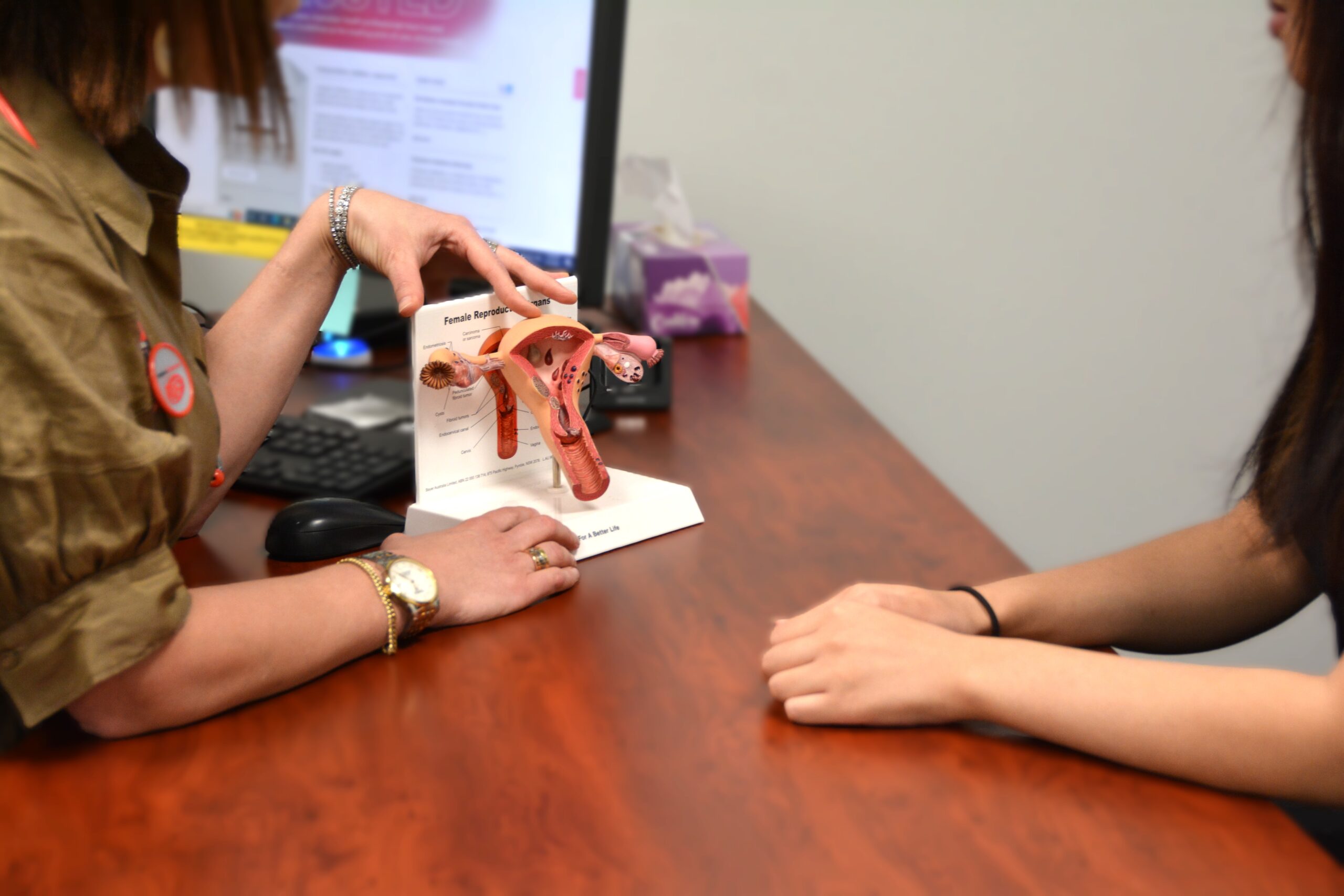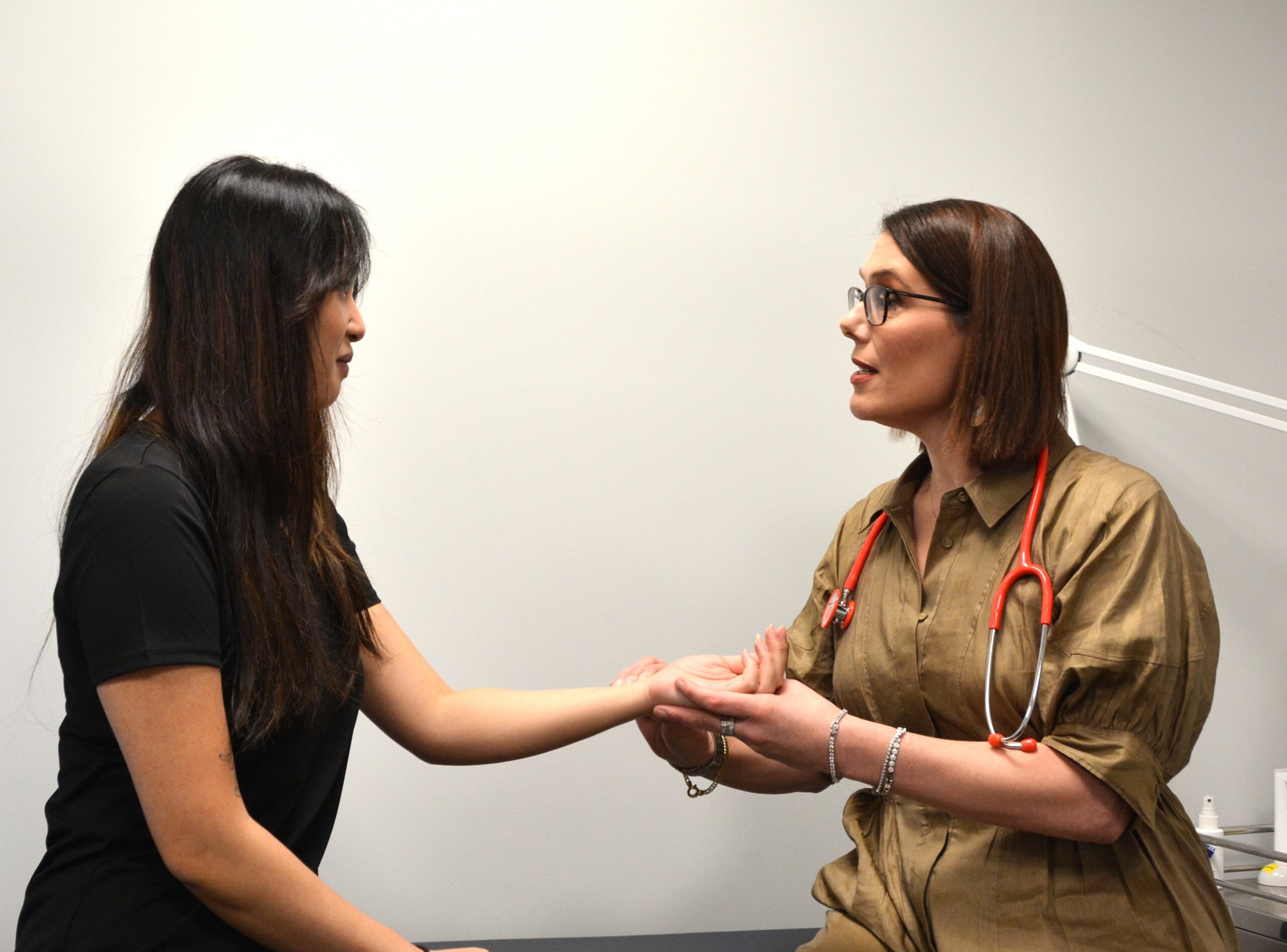Menopause
Healthcare for women during both the perimenopausal
and menopausal phases
Introduction
Menopause refers to the time in a woman’s life when she has passed 12 months past her last natural period.
Perimenopause is a period leading up to menopause. It refers to a series of symptoms that women can experience as their natural oestrogen levels start to decline as their fertile life comes to an end.
Healthcare on Collins’ thoughtful GPs provide comprehensive healthcare for women during both the perimenopausal and menopausal phases, helping them manage the physical and emotional changes that accompany this significant transition in their lives.

Symptoms of Menopause
Menopause is a varied experience for women.
While some women may reach menopause without experiencing noticeable symptoms, others at the opposite end of the spectrum, may endure severe and persistent symptoms. These include, but are not limited to:
- Physical symptoms including fatigue, headache, muscle ache, joint pain, dry skin, and the famous symptom of flushing (where women have a sudden rush of heat throughout their body that is associated with the decline in oestrogen levels).
- Psychological symptoms including depression, anxiety, insomnia, feeling unappreciated or unloved.
- Sexual symptoms including a decrease in libido, difficulty achieving orgasm, vaginal dryness/discomfort during intercourse and urinary frequency.
Healthcare on Collin’s GPs are well-equipped to provide support and tailored care to women experiencing the wide range of symptoms associated with menopause.

Treatment of Menopause at Healthcare on Collins

Menopausal Hormone Treatment (MHT) is the gold standard of symptom treatment and involves replacing oestrogen.
The lack of oestrogen is responsible for the spectrum of symptoms that women experience.
GPs carefully discuss the pros and cons of menopausal hormonal therapy with women.
In most cases, it is a suitable option, however, there are exceptions and preferences to be considered.

Unlike MHT, there is not a non-hormonal option that treats the whole spectrum of symptoms.
For example, for hot flushes, which can be the most problematic symptom, there are medications available.
Antidepressants, complimentary/alternative medicines & practical ways to reduce symptoms including layering clothing, ensuring that bedding isn’t overheating, etc, are considered.
Personalised Evaluation
The most commonly used of these is the Australian Menopause Society symptom scorecard. For psychological symptoms, GPs use the Meno-D scorecard.
Both of those are very helpful in identifying physical, sexual, and also emotional symptoms in females.
They help GPs to grade severity and inform the clinician/patient when treatment may be appropriate. Moreover, they track how successful the treatment is in reducing symptom burden.

Experience Compassionate Healthcare of the Highest Quality
The most important component is awareness, which is recognising the symptoms of perimenopause and menopause, and then women can decide if they want to have those symptoms treated.
Subsequently, the GPs typically decide to treat symptoms based on their severity, but also based on how impactful they are in a woman’s life and what the effect is on a woman’s quality of life.
If you would like an appointment with a highly experienced GP, please contact our office or make a booking below.
Call Us
(03) 9650 4284

FAQ
How does menopause typically affect a person’s lifestyle?
Menopause can have a significant impact on various aspects of a woman’s life, depending on her specific symptoms. These symptoms, as mentioned earlier, can be quite burdensome and affect her interpersonal relationships, work performance, social activities, and self-esteem.
Physical symptoms can hinder daily activities, including exercise and routine tasks.
The severity of these symptoms varies, ranging from mild inconveniences to having a substantial impact on a woman’s daily life.
In terms of lifestyle adjustments, GPs often discuss:
- Encouraging regular exercise and its positive effects on managing menopausal symptoms.
- Advising on appropriate levels of alcohol consumption.
- Promoting good sleep hygiene practices to improve sleep quality and quantity.
- Addressing the impact of stimulants that can contribute to insomnia and anxiety.
Are there any specific health checks that women approaching menopause should consider?
Absolutely. Healthcare on Collins encourages women approaching menopause to consider several important health checks and screenings:
- Cervical screening tests
- Mammogram screening
- Cardiovascular screening
- Regular checks for blood pressure, cholesterol and sugar levels
- Bowel cancer screening
For women approaching the age of 70, GPs may recommend bone density screening, which may be suggested earlier for those at higher risk.
Equally important is addressing lifestyle factors. GPs strongly advise women to refrain from smoking, manage alcohol intake, maintain a balanced and nutritious diet, and engage in regular physical exercise.
Furthermore, women in perimenopause should become familiar with the menopause symptom checker. This way, they can recognise any symptoms that arise during their journey and seek appropriate help if necessary.
Where Healthcare On Collins uses the term woman, we are including women, transgender men, and all people who were born with female reproductive organs.
